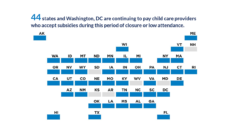Millennials and Generation Z will comprise larger and larger percentages of the workforce in the coming years. Thus, societal functioning will depend on how they emerge from the Covid-19 pandemic. As the world continues to struggle with Covid-19, the mental health of young adults has been extremely important. With the early months of the pandemic leading to the rapid closure of schools and businesses, as well as the enforcement of social distancing policies, disruptions in daily life could put young adults who show high rates of mental health problems at risk for even greater challenges.
What are the protective and risk factors for young adults’ mental health? Understanding the factors that influenced mental health during the first month of the Covid-19 shut down in the US may provide insights into helping young adults cope with increases in mental health problems.
We conducted the Covid-19 Adult Resilience Experiences Study 2020 to assess 898 racially diverse young adults from April 13 to May 19, 2020. This online survey captured responses in the first two months of the state-of-emergency shutdowns across the country. The analysis identified the factors associated with higher levels of depression, anxiety, and post-traumatic stress disorder (PTSD) symptoms. We were particularly interested in the role of specific psychological experiences: distress tolerance, resilience, social support, and loneliness.
Low distress tolerance was significantly associated with high levels of depression, anxiety, and PTSD symptoms. On the other hand, high levels of resilience were associated with low levels of anxiety.
This study was among the first to highlight the major mental health challenges burdening young adults in the early months of the pandemic. Approximately 32-45% of young adults reported clinically elevated levels of depression, anxiety, and PTSD symptoms. These rates are much higher than in epidemiological studies conducted before Covid-19.
Our study found that high loneliness was associated with high levels of depression, anxiety, and PTSD symptomatology. We speculate that social distancing could have exacerbated the feelings of loneliness. Those who had social support from their families had consistently lower levels of depressions and PTSD symptoms.
Low distress tolerance was significantly associated with high levels of depression, anxiety, and PTSD symptoms. On the other hand, high levels of resilience were associated with low levels of anxiety.
The Covid-19 pandemic has had lingering effects, and it continues to have profound and multidimensional impacts on mental and physical health, employment, and interpersonal relationships among young adults. Failure to efficiently and effectively address mental health vulnerabilities will result decreases in overall health of these young adults. Public health professionals and policy makers need to develop thoughtful and systematically informed approaches. Possible interventions include expanding the mental health workforce, improving access to mental health, trauma, and substance use programs via telehealth, and suicide prevention that includes limiting access to guns and lethal medication.
Photo via Getty Images
















